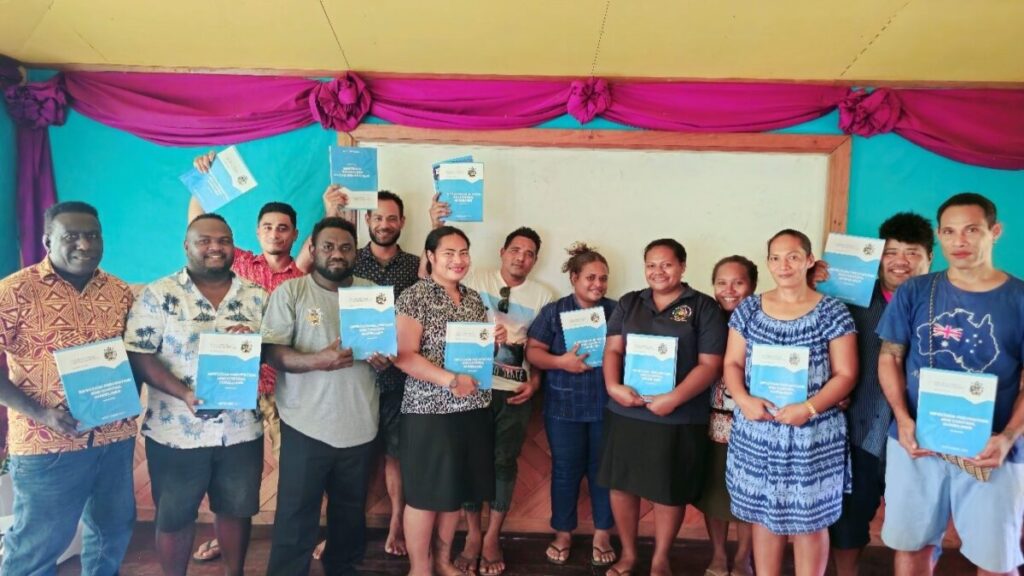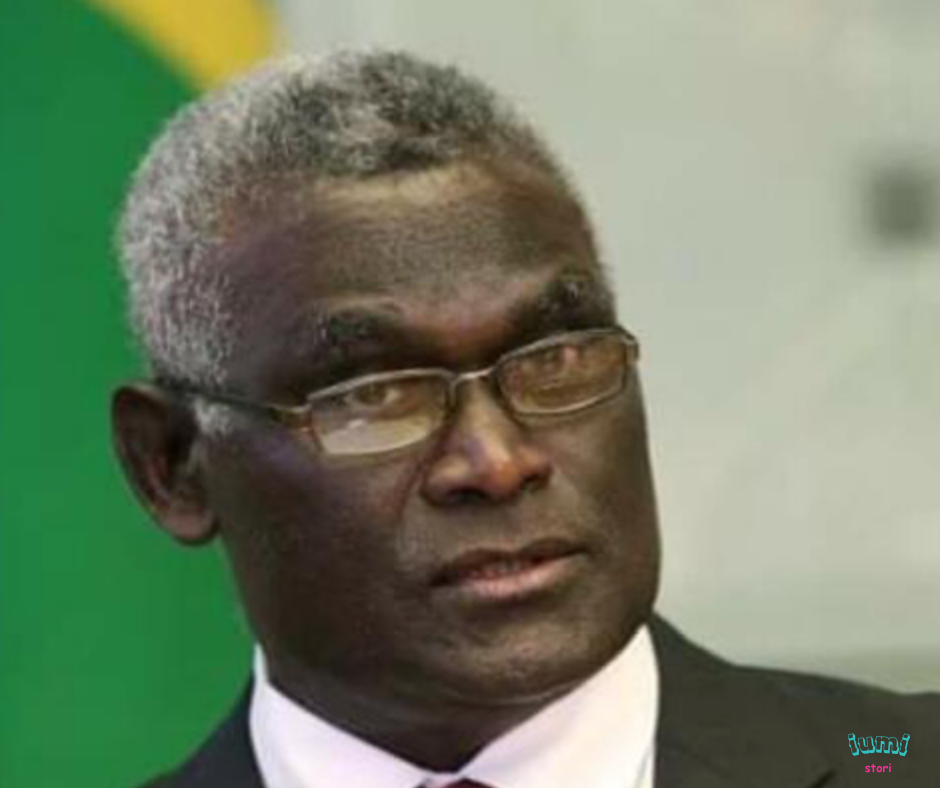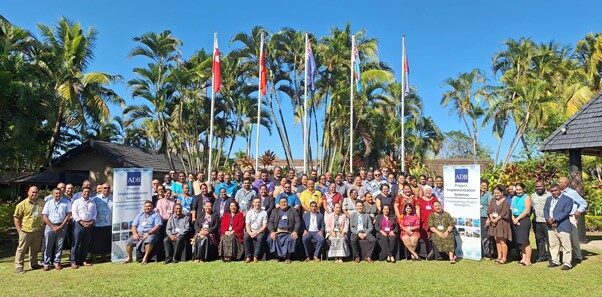Rennell and Bellona Health workers successfully complete Infection Prevention and Control (IPC) Guideline Awareness Training
An Infection Prevention and Control (IPC) Guideline Awareness Training supported by the World Bank through COVID-19 Emergency Preparedness and Response project, within the Ministry of Health and Medical Services (MHMS) was recently conducted for healthcare facilities in Rennell and Bellona Provinces.
The training, which aimed to enhance the knowledge and application of the National IPC Guideline within provincial healthcare settings was attended by provincial nurses, environmental health officers, and health promotion officers.
The National Infection Prevention and Control Coordinator, Mr. Rolly Viga, led the sessions by presenting the 10 chapters of the National IPC Guideline, focusing on its core components. Complementing this, Mrs. Rachale Wale, an IPC nurse from the National Referral Hospital, conducted practical sessions that reinforced the key guidelines presented. These sessions aimed to provide participants with hands-on experience in implementing IPC measures.
At the training. World Bank Project Monitoring and Evaluation Officer Jimmy Kaluae highlighted the role of the project in supporting the IPC program, emphasizing how the projects monitoring tools are integrated into the program’s oversight and evaluation.

The National IPC Guideline has been rolled out across the country, and Rennell and Bellona is the third-to-last province to receive the training. Guadalcanal Province (GP) and Honiara City Council (HCC) are expected to complete their training sessions later this year.
The Nursing Director for Renbel and Bellona Provinces praised the program, emphasizing that it has significantly improved local healthcare workers’ access to, and understanding of the National IPC Guideline. This will enable them to better apply IPC practices that are tailored to the specific needs and contexts of their healthcare facilities.
As part of the program, the team representing the MHMS paid a courtesy visit to the Renbel and Bellona Provincial Government. During this visit, the National Infection Prevention and Control (IPC) Coordinator, Mr. Rolly Viga, officially handed over a copy of the Infection Prevention and Control Policy Guideline to the Provincial Government Representative at the Provincial Assembly Hall. The handover was a brief but significant moment, lasting 5-10 minutes.

During the handover, Mr. Viga highlighted the critical role of the provincial government in supporting the health sector, particularly in areas such as water access for hand hygiene and improving waste management systems. He stressed that some aspects of the guideline, such as waste disposal and sanitation, extend beyond the health sector’s immediate control. Thus, collaboration with the provincial government is essential for achieving the objectives of the IPC guideline. There were 8 provinces covered for the similar Training with a total participants of 600 health professionals (beneficiary).
The Provincial Government Representative expressed gratitude for the visit, acknowledging the importance of the Infection Prevention and Control Policy Guideline in shaping provincial policies. He emphasized that having this policy in place would allow the provincial government to better plan and collaborate with the health sector to meet shared goals.
In his closing remarks, Mr. Viga reaffirmed the fundamental role of the IPC program, describing it as the cornerstone of quality healthcare delivery for both health facilities and the broader community.
End//



